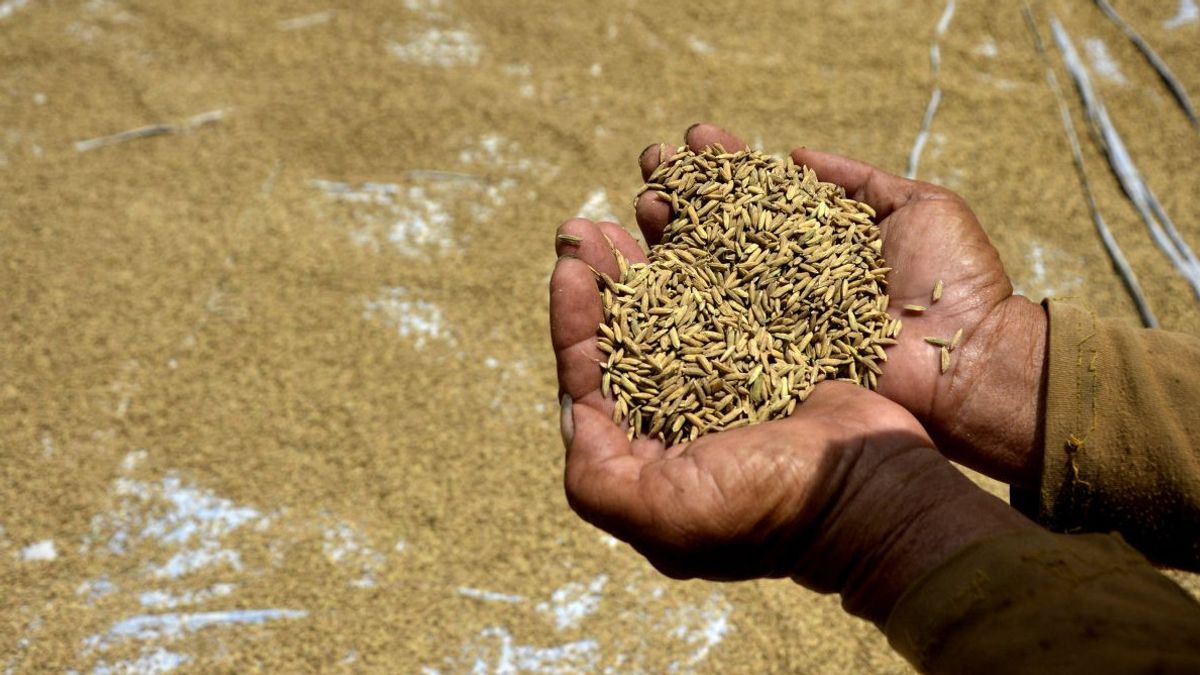JAKARTA - Director of Supply Chain and Public Service (SCPP) Perum Bulog Mokhamad Suyamto said the flexibility of the government's purchase price (HPP) of harvested dry unhulled rice (GKP) at the farmer level was IDR 6,000 per kilogram (kg), to maximize domestic rice production.
"The current flexibility of grain and rice prices allows us to carry out domestic procurement optimally to meet national food needs," said Suyamto as quoted by ANTARA, Friday, April 5.
Suyamto explained that Bulog is maximizing the absorption of domestic grain and rice for the needs of government rice reserves (CBP), in order to strengthen national food supplies.
According to Suyamto, in addition to increasing food security, the absorption of grain and domestic rice during this price flexibility period also aims to improve the welfare of farmers through the purchase of well-maintained staple food prices.
He hopes that in addition to sufficient national rice stocks through domestic procurement, farmers will also get good purchase prices by Bulog during the HPP flexibility policy of dry unhulled rice at the farmer level.
"Finishing national stocks through domestic procurement is certainly Bulog's priority," said Suyamto.
Previously, the National Food Agency (Bapanas) imposed flexibility for Perum Bulog for the GKP HPP at the farmer level, to Rp6,000 per kilogram (kg) from the previous Rp5,000 per kg.
Arief said the policy took effect from Wednesday, April 3 to June 30, 2024, with the aim of Bulog being able to increase the government's rice reserves (CBP) from domestic production.
Arif added that the flexibility of the HPP of unhulled rice and rice applied to Perum Bulog is also for dry milling unhulled rice (GKG) in Perum Bulog warehouse which was previously Rp6,300 per kg with flexibility to Rp7,400 per kg.
SEE ALSO:
Meanwhile, the HPP of rice in Perum Bulog's warehouse with a minimum level of 95 percent, water levels 14 percent, broken grains a maximum of 20 percent, and menir pills a maximum of 2 percent, which was previously Rp9,950 per kg, were reflected into Rp11,000 per kg.
"Of course, with price flexibility for Bulog, it will be a safety net for farmers, so that prices can be maintained properly. When production increases, it will certainly affect prices," said Arief.
According to Arief, flexibility needs to be applied in order to continue to maintain a good and reasonable price at the producer level and to weigh the average price in the market that is above the HPP of grain and rice as stipulated in the National Food Agency Regulation (Perbadan) Number 6 of 2023 concerning Government Purchase Prices and Rice and Rice Price Rate
The English, Chinese, Japanese, Arabic, and French versions are automatically generated by the AI. So there may still be inaccuracies in translating, please always see Indonesian as our main language. (system supported by DigitalSiber.id)















